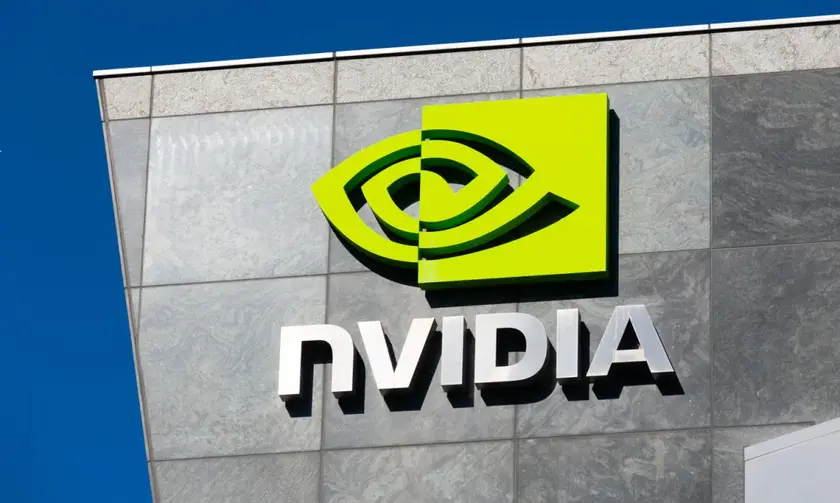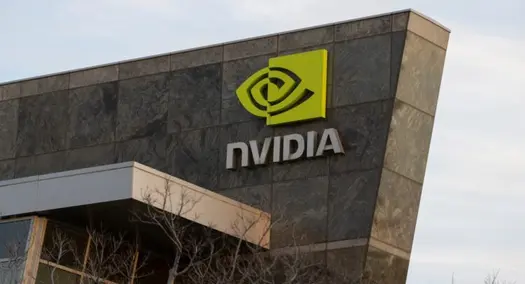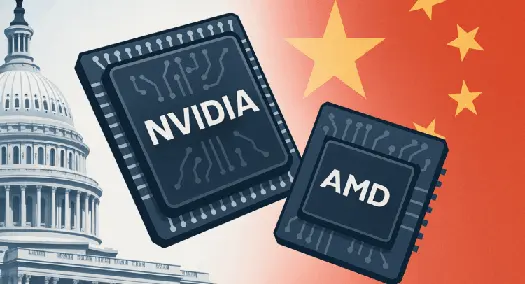T4K3.news
Nvidia faces revenue concentration risk from two buyers
Two customers drove 39% of Nvidia’s Q2 revenue, underscoring dependence on a small buyer base amid a booming AI market.

Two buyers accounted for 39 percent of Nvidia’s Q2 revenue, highlighting reliance on a small customer base amid a booming AI market.
Nvidia Faces Revenue Concentration Risk from Two Buyers
Nvidia posted a record quarterly revenue of 46.7 billion dollars, up 55 percent, fueled by strong demand in AI data centers. A securities filing cited by TechCrunch shows that two customers contributed 23 percent and 16 percent of revenue respectively, totaling 39 percent for the quarter. Four unnamed customers accounted for another 46 percent, with the filing noting these buyers were direct customers such as OEMs, system integrators, or distributors buying chips directly from Nvidia. The data center business remains the backbone, representing about 88 percent of Nvidia’s total earnings, and large cloud providers are said to account for about half of that data center revenue.
Beyond the numbers, the filing underscores how Nvidia’s growth hinges on a relatively small group of buyers even as AI demand expands across industries. The pattern raises questions about resilience if enterprise buying shifts, and it mirrors broader conversations in tech about diversification of customers and revenue streams as the AI boom matures.
Key Takeaways
"Concentration risk is the quiet backstop in Nvidia's AI boom"
A highlight about risk from buyer concentration
"Growth looks unstoppable until a small circle decides the pace"
An opinion on dependency risk
"The AI surge needs more buyers to stay durable"
Editorial note on diversification needs
"Huge revenue hinges on a handful of customers"
Factual observation about revenue structure
The story is less a traditional earnings note and more a note on risk in a high-flyer business. Nvidia’s ascent sits on the edge of operator concentration: a handful of buyers drive a large share of sales while many others remain smaller, which can amplify volatility if spending patterns shift. This reality intersects with policy and trade considerations that shape AI infrastructure demand, adding a layer of uncertainty for investors and managers alike. The takeaway is not that Nvidia stagnates, but that growth will be more durable if it broadens its customer base and guards against a single point of failure. In short, the AI surge is real, yet its strength will depend on how Nvidia widens its circle of buyers over time.
Highlights
- Concentration risk is the quiet backstop in Nvidia's AI boom
- Growth looks unstoppable until a small circle decides the pace
- The AI surge needs more buyers to stay durable
- Huge revenue hinges on a handful of customers
Concentration risk in Nvidia's customer base
A small group of buyers accounts for a large share of revenue, creating potential volatility if buyer demand shifts or if customers reallocate budgets. Diversification risk could attract investor scrutiny and affect stock performance during AI market cycles.
The next earnings cycle will show if Nvidia can diversify without slowing the AI momentum.
Enjoyed this? Let your friends know!
Related News

Tech stocks retreat as markets pause after record highs

HSBC cautious on Nvidia ahead of Q2

AI stock valuations scrutinized

Nvidia profits beat estimates but shares fall

Nvidia drives AI hype risk in markets

Stock Markets Climb as Earnings Reports Approach

Chip policy faces fresh political risk

AI stock risk alert
